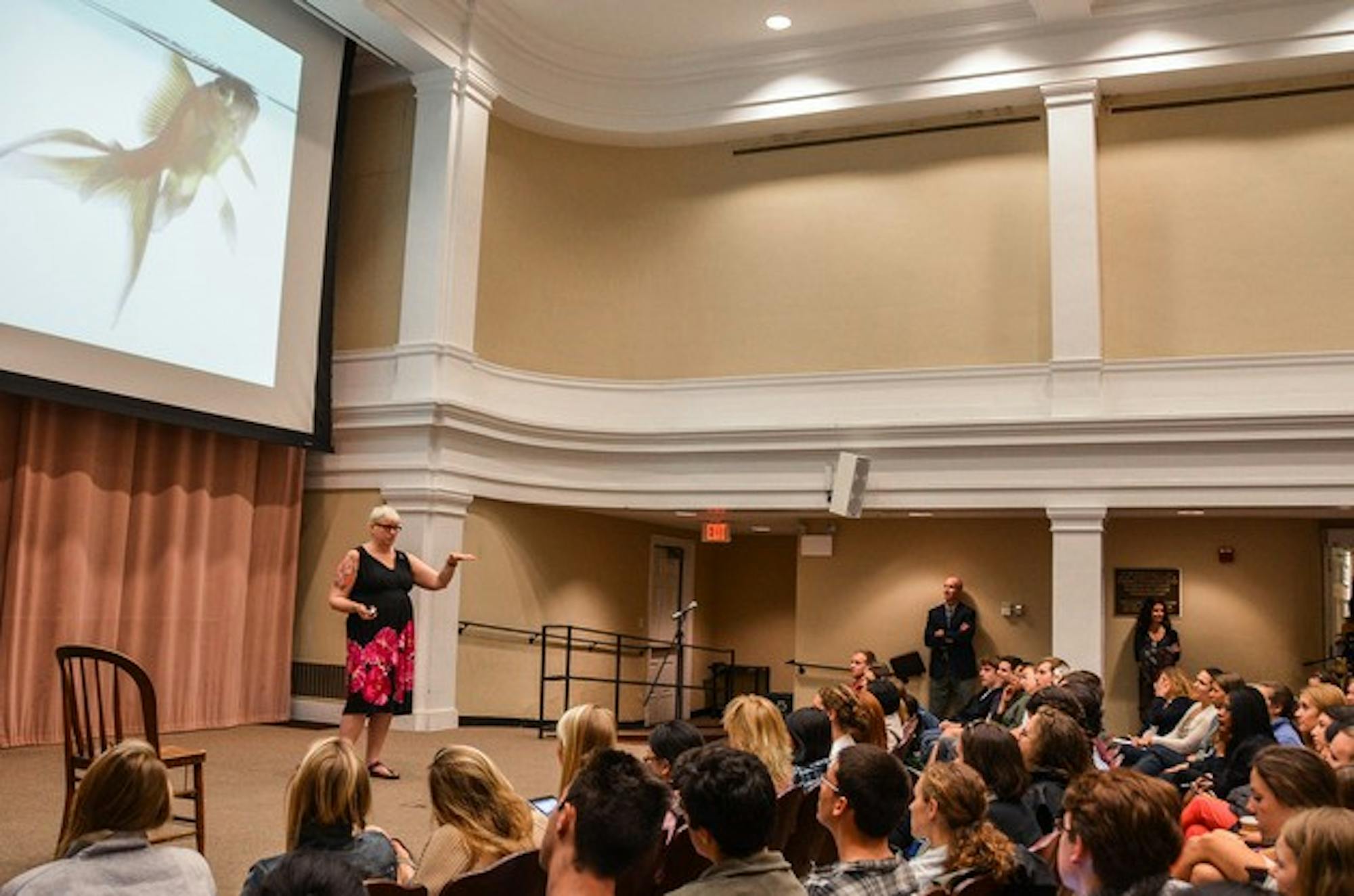Pettitt spoke about the significance of open dialogue and individual initiative in instituting meaningful social change in a divided community. She said she saw this division at Dartmouth in the wake of the Dimensions protest and subsequent backlash.
The most effective tools for approaching social justice are open conversations that acknowledge opposing views and conscious individual efforts to make small but tangible changes, she said.
"It is important to have conversations across differences, not so you can win, but so you can lose," she said.
She said Dartmouth students have a distinct, under-appreciated privilege in that they are free to express opinions anonymously on listservs, gather for an unrestricted debate about the protests and complain about today's canceled classes.
The recent protests have brought forth universal issues of sexism, racism, homophobia and socioeconomic disparities.
"Some of us have subordinated or marginalized identities, but we all have privileges," she said. "I'm speaking to Dartmouth. We're literate, able to voice ourselves and free to organize."
The string of violent threats against the Dimensions protesters on sites like Facebook and Bored at Baker, an anonymous message board, in the past several days are examples of not taking ownership of one's actions and ignoring the negative consequences to others, she said.
"You don't have to be friends with everyone, but you can be civil and respectful to one another," she said.
Although people have different identities and opinions, the fact that we all experience pain functions as "the great equalizer," Pettitt said.
Pettitt said she did not initially consider her heroes, which include Martin Luther King, Jr., Mother Teresa and Mahatma Gandhi, as people, and instead put them on a pedestal. The tendency to glorify certain individuals manifests itself in broader society.
Through her research, Pettitt discovered King's homophobia and extramarital relations and Gandhi's abuse of his wife and children.
Despite their failings, these leaders were able to pursue social justice objectives that eventually resulted in substantial improvements to society, she said.
Returning to her assertion about the power of an individual to incite meaningful social changes, Pettitt urged audience members to discuss the campus climate.
"Stand up, do something, speak, say it, use your voice," she said. "Those of you who don't feel like you have voices blog, journal, sign your names, act, get up."
Molly Thornton '14 said she engaged in many discussions about the Dimensions protest over the weekend and attended the lecture in order to better understand the appropriate actions campus can take moving forward.
Sandi Caalim '13, who attended the meeting where faculty members decided to cancel class, said her views mostly aligned with Pettitt's.
"Social justice groups tend to alienate one another and the people who need to listen to their messages the most through their ways of activism," she said. "It's nice to see that we are all people regardless of our backgrounds and we all want a safer space whether we have vocalized it yet."
Gabrielle Lucke, diversity training and educational programs director in the Office of Institutional Diversity and Equity, said her office invited Pettitt to speak at Dartmouth based on prior interactions with the speaker.
"Jessica has a contagious enthusiasm for addressing sensitive issues and an ability to break them down so that activism can be very doable for average people," Lucke said.
Lucke appreciated the administration's decision to cancel classes yesterday, as it gives attention to the prevailing negative atmosphere on campus.
"I think it was shocking enough to let everybody know that this is important," she said. "It's an opportunity for us as an institution to stop and really take a moment to figure out what is going on here, who we are and where we are going."




